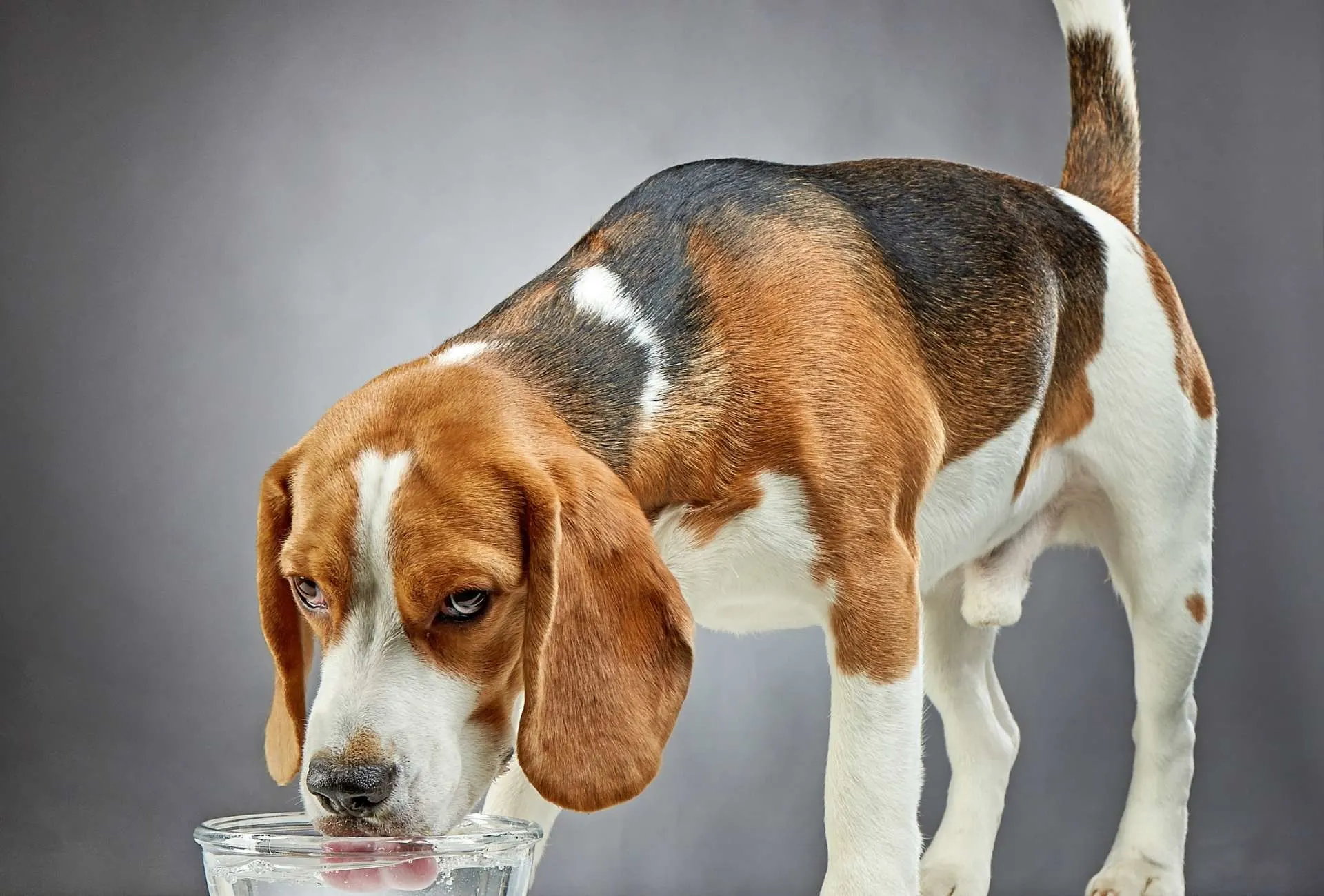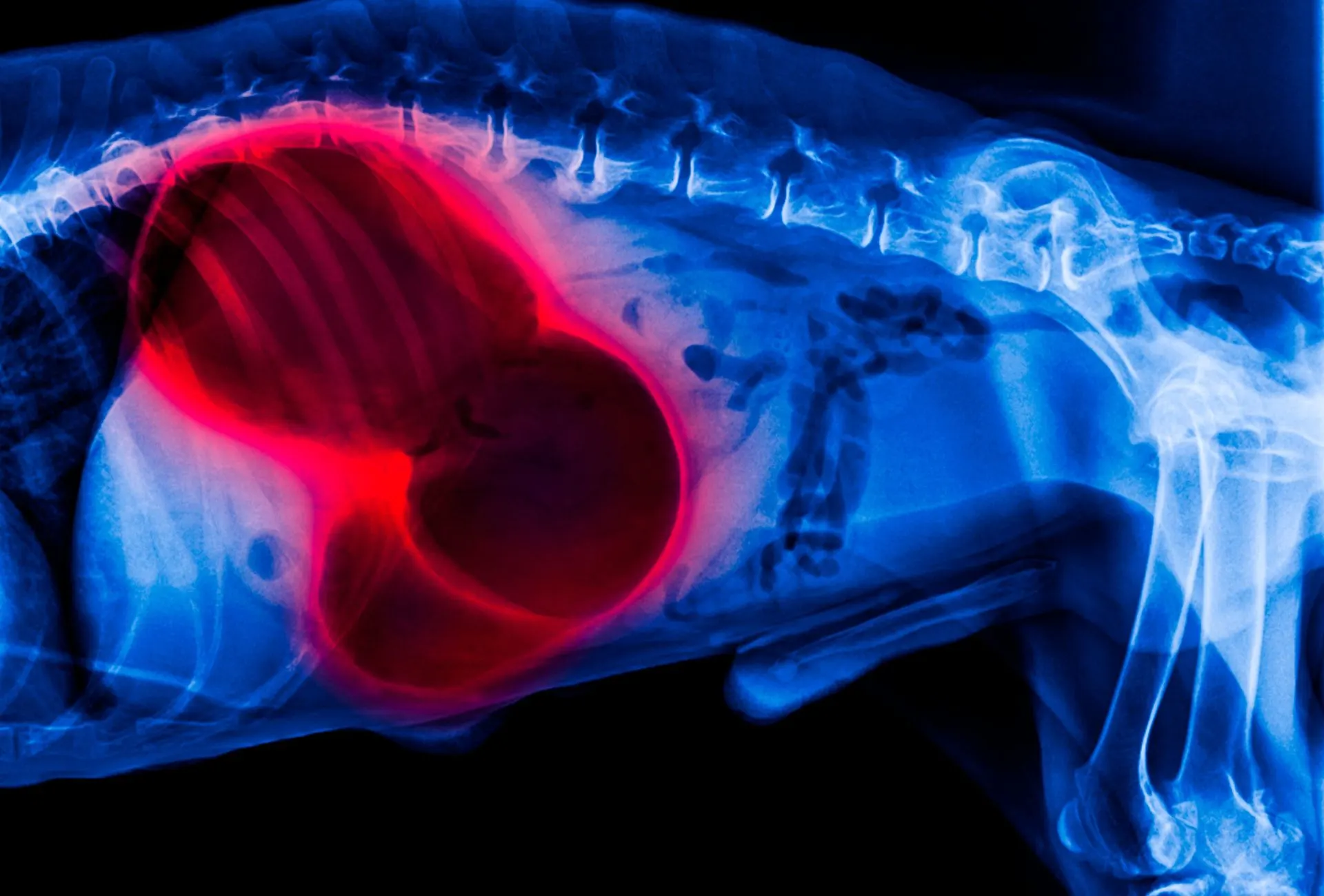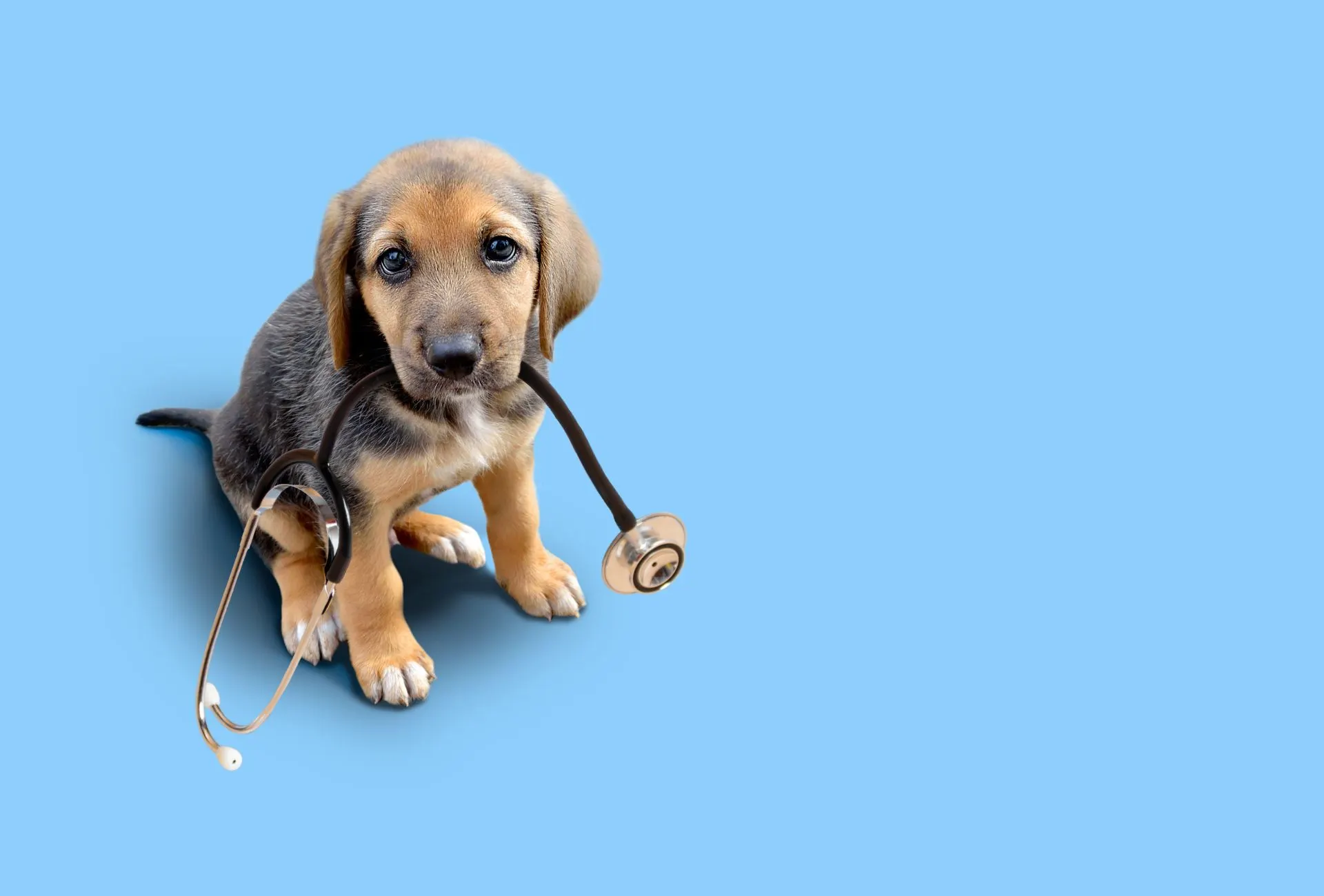On one hand, your regular dog owner is not really informed about bloat.
On the other hand, we have informed dog owners breaking a sweat the second they notice symptoms that might fit bloat.
To this day, bloat partly remains a medical mystery.
There have been studies exploring breed pre-dispositions for bloat and non-dietary as well as dietary factors.
Some researchers even focused on climate as a risk factor for bloat.
While we do know more about bloat than we did decades ago, the exact causes are still unknown.
We do know that some breeds are prone to this condition (more on that below) and vets generally recommend a couple of preventative measures.
However, some researchers and vets criticize whether or not the actions to prevent bloat are actually effective.
Despite the criticism of the prevention methods, they cost nothing and are easy to implement so I’ll still share them.
But for now, I’m aiming to explore whether or not dogs with bloat can actually go about their day as usual.

Will a dog with bloat drink water? What about eating?
Do they pee, sleep, play, or exhibit any other unusual behaviors?
After that, I’ll share the mandatory list of signs your dog might suffer from bloat as well as the suspected causes and prevention methods.
Will a Dog With Bloat Drink Water?
A dog with bloat might still drink water. Some dogs refuse to drink and eat completely, others actually seek out water to replenish after vomiting or to alleviate the pain bloat causes.
In any case, you shouldn’t let your dog drink large amounts quickly if bloat is suspected.
For some dogs, drinking large amounts of water may be the reason they’re suffering from bloat now.
The idea behind this theory is that when dogs drink or eat quickly, they gulp a lot of air.
Bloated dogs who vomited might also seek out water sources in a quest to rehydrate.
Even water-seeking dogs should probably be kept from drinking too much unless your vet evaluates dehydration as a more pressing issue for a mildly bloated dog.

While excessive drinking may be the cause of your dog’s bloat or worsen it, it’s not a prominent symptom and neither is refusing to drink.
It doesn’t matter if your dog drinks or not, if you suspect bloat is at play, consult your vet. Time is crucial.
While “consult your vet” is a popular cop-out, bloat is one of the few true medical emergencies because your dog is at risk for GDV.
If your vet determines your dog suffers from a mild case of bloat, they might recommend three steps regarding water, food, and exercise.
For mildly bloated dogs, it’s often advised to distribute water intake over several drinking sessions, withhold food for 12-24 hours and feed small portions, and walk your dog frequently.
I have more on food and drink as causes as well as ways to prevent bloat below.
Consulting your vet is always the right answer when it comes to bloat.
A fast response increases your pet’s chances of survival drastically.
Dog Swollen Belly Drinking Lots of Water
A swollen belly might be a sign of bloat, possibly in an advanced state, and drinking lots of water at once may worsen the bloat issue.
If you notice the symptoms explained below (such as retching, pacing, a fixation on the belly, pale gums) and your dog has a distended belly, call your vet now.
A dog with bloat at risk of a serious GDV case needs to see a vet immediately and not drink water in the meantime.

Gulping water may be what’s contributed to your dog’s bloat and water won’t treat a serious case of bloat, there’s no use in letting your dog gulp a large amount of fluid.
However, if bloat is ruled out after an examination, your vet may actually recommend water intake, depending on the condition.
A swollen belly does not necessarily equal bloat, but a distended belly is a common sign of bloat.
Will a Dog With Bloat Eat?
No, a dog with bloat will usually not eat and neither should a bloated dog eat. But they may eat grass since the retching produces no actual content except for foam.
Eating large amounts of food at once may have contributed to bloat and might worsen the situation even more without any upside.
Similarly, eating grass may also make the problem worse as your dog could choke on it or the grass causes a blockage.
Most dogs with bloat decide not to eat and are instead pacing around, bowing down, panting, and generally more fixated on alleviating the pain a serious case of bloat causes.
As mentioned above, if your vet is sure your dog has a mild case that can be treated at home, food should be withheld for 12-24 hours anyway, according to experts.
My Dog Is Bloated But Still Pooping
Bloated dogs may still poop, but it can be a painful process and is not a definitive sign that dog doesn’t need veterinary attention.
While pooping is not common in seriously bloated dogs, some dogs try everything to alleviate the pain.
If the symptoms match and you suspect bloat, don’t encourage your dog to poop by feeding lots of fiber at once unless advised by your vet.
Dogs who haven’t pooped in a long time may experience a blockage, ask your vet to know more about the proper course of action.
Will a Dog With Bloat Pee, Sleep, Play, or Eat Grass?
A dog with bloat may still be able to follow his daily routine, but may not be able to pee, sleep, or play due to the pain they experience.
Play is usually the first thing you’ll see a dog in pain not do anymore.
Some individuals can still muster the energy to play.
However, just because they’re acting well does not mean that their case of bloat is not an emergency.
Bloat can turn quickly and a dog who seems fine one minute can be in extremely bad shape in the next few minutes.
Always give your vet a call and don’t rely on your dog’s somewhat normal behavior. If the symptoms fit, call your vet.
Bloat Symptoms
Below are the symptoms you should look out for.
- Retching/dry heaving/vomiting white foam
- Swollen/distended belly
- Protective or fixated on their belly
- Pacing, sudden anxiety
- Drool and pant
- Pale gums
Bloat Causes & Prevention
Here are a couple of factors that may put your dog at risk for bloat and how to do your best to prevent it.
- Breeds: Deep-chested
- Age: Senior dogs are at a higher risk
- Weight: More than 99 pounds increases the risk by about 20%
- Family history of bloat
- Ingesting large amounts of food or water too quickly
- Exercise less than 30-60 min after a meal
- Elevated food bowl
There’s not much you can do about your dog’s breed, age, or family history, but make sure your dog maintains a healthy weight.
To prevent bloat in the first place, it’s best to feed 2-4 meals and avoid exercising your dog 60 minutes after meals.
An elevated feeder was previously recommended but one study found out it may actually increase the chances of bloat.
If your dog needs an elevated food bowl for medical reasons, you shouldn’t ditch it without consulting with your vet.
Sources
Most of the following resources are about GDV and its risk factors.
All of the following links lead to the National Library of Medicine or the American Veterinary Medical Association (AVMA).
- Analysis of risk factors for gastric dilatation and dilatation-volvulus in dogs
- Multiple risk factors for the gastric dilatation-volvulus syndrome in dogs: a practitioner/owner case-control study.
- Incidence of breed-related risk factors for gastric dilatation-volvulus in dogs
- Non-dietary risk factors for gastric dilatation-volvulus in large and giant breed dogs
- Diet-related risk factors for gastric dilatation-volvulus in dogs of high-risk breeds
- The Effect of Ingredients in Dry Dog Foods on the Risk of Gastric Dilatation-Volvulus in Dogs
- Small size of food particles and age as risk factors for gastric dilatation volvulus in great danes
- Gastric foreign body as a risk factor for gastric dilatation and volvulus in dogs
- Climatic conditions as a risk factor in canine gastric dilatation-volvulus
- Relationship between incidence of gastric dilatation-volvulus and biometeorologic events in a population of military working dogs
- Canine gastric dilatation/volvulus syndrome in a veterinary critical care unit: 295 cases (1986-1992)
- An Internet-based survey of risk factors for surgical gastric dilatation-volvulus in dogs
- Mortality and morbidity due to gastric dilatation-volvulus syndrome in pedigree dogs in the UK
- Efficacy of incisional gastropexy for prevention of GDV in dogs
- Stomach Gas Analyses in Canine Acute Gastric Dilatation with Volvulus
